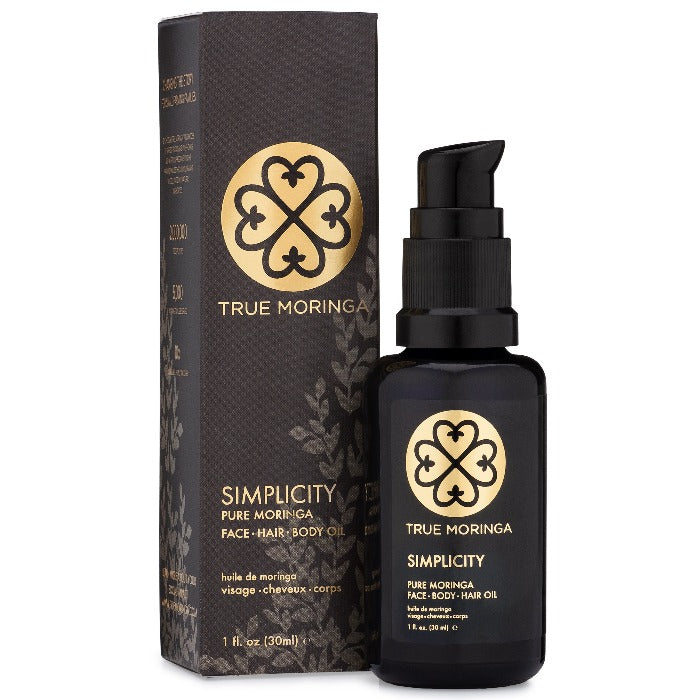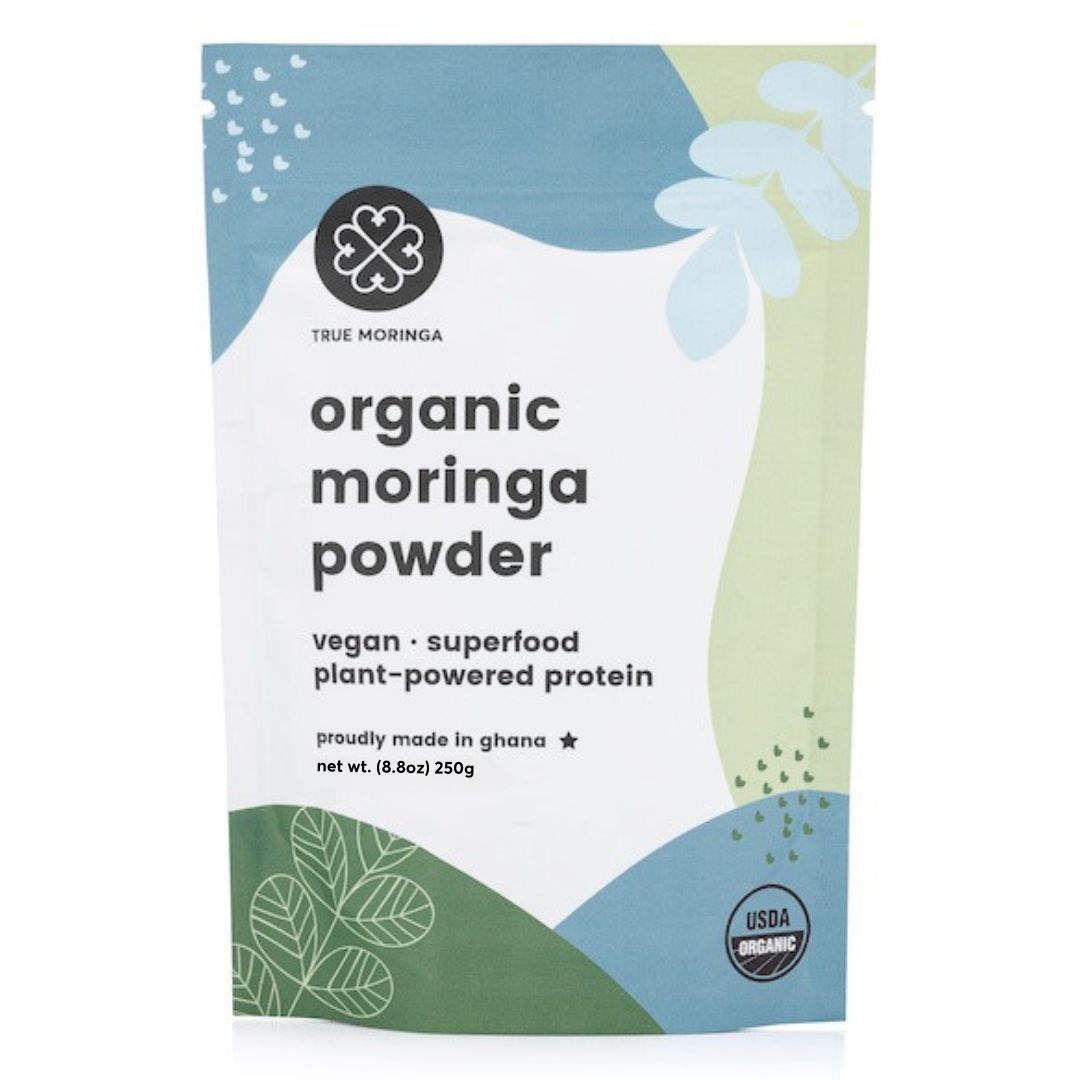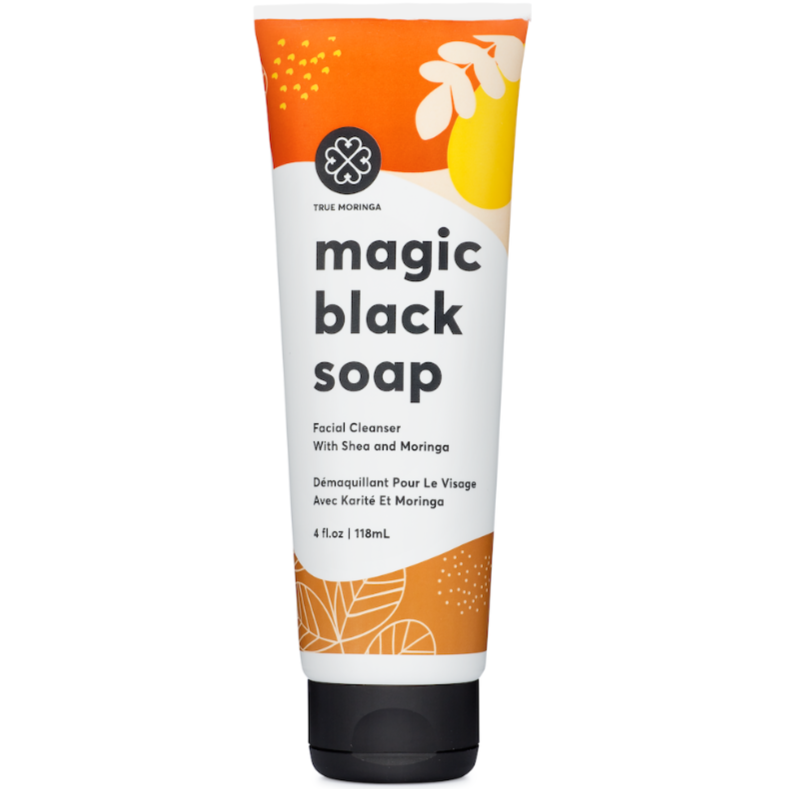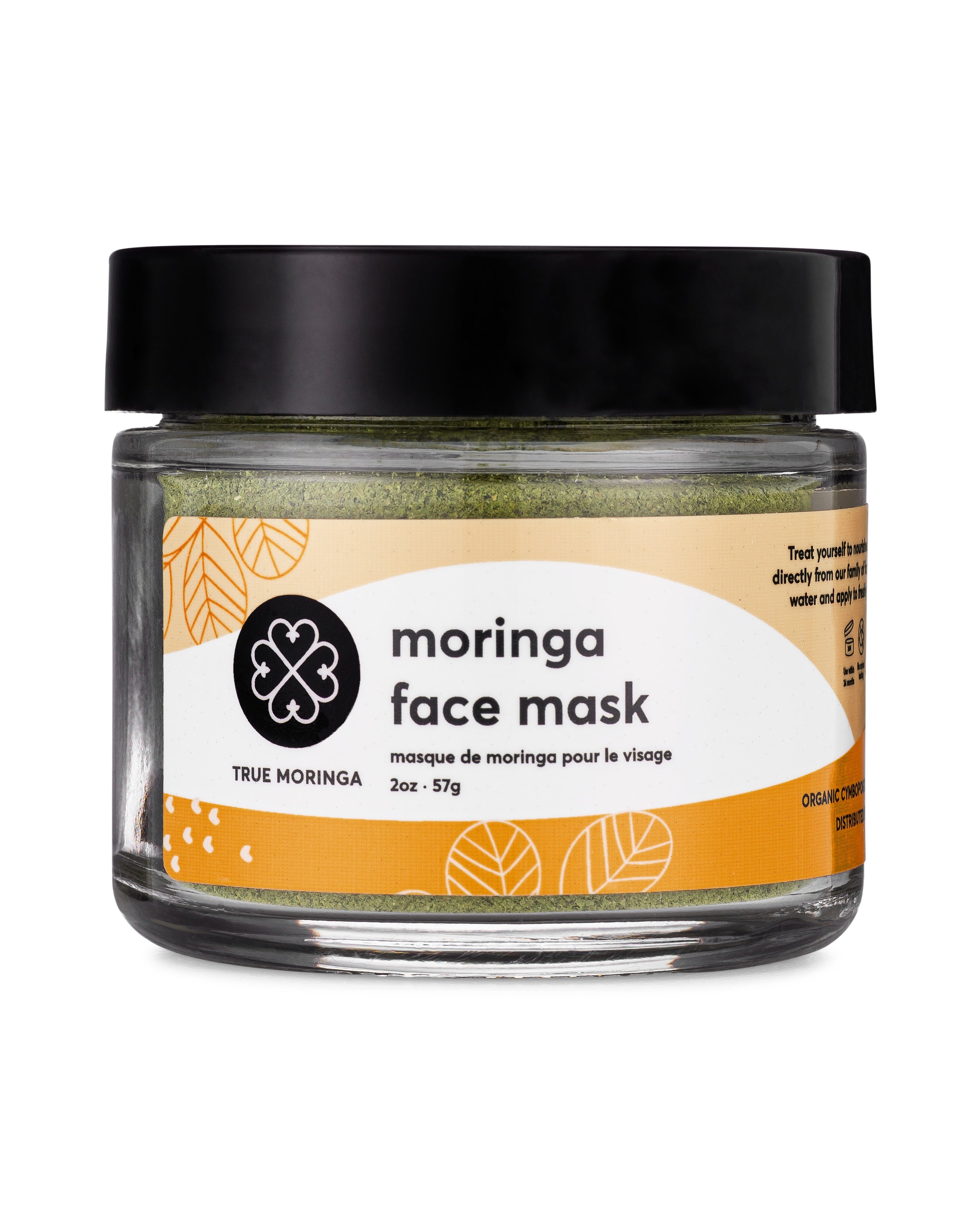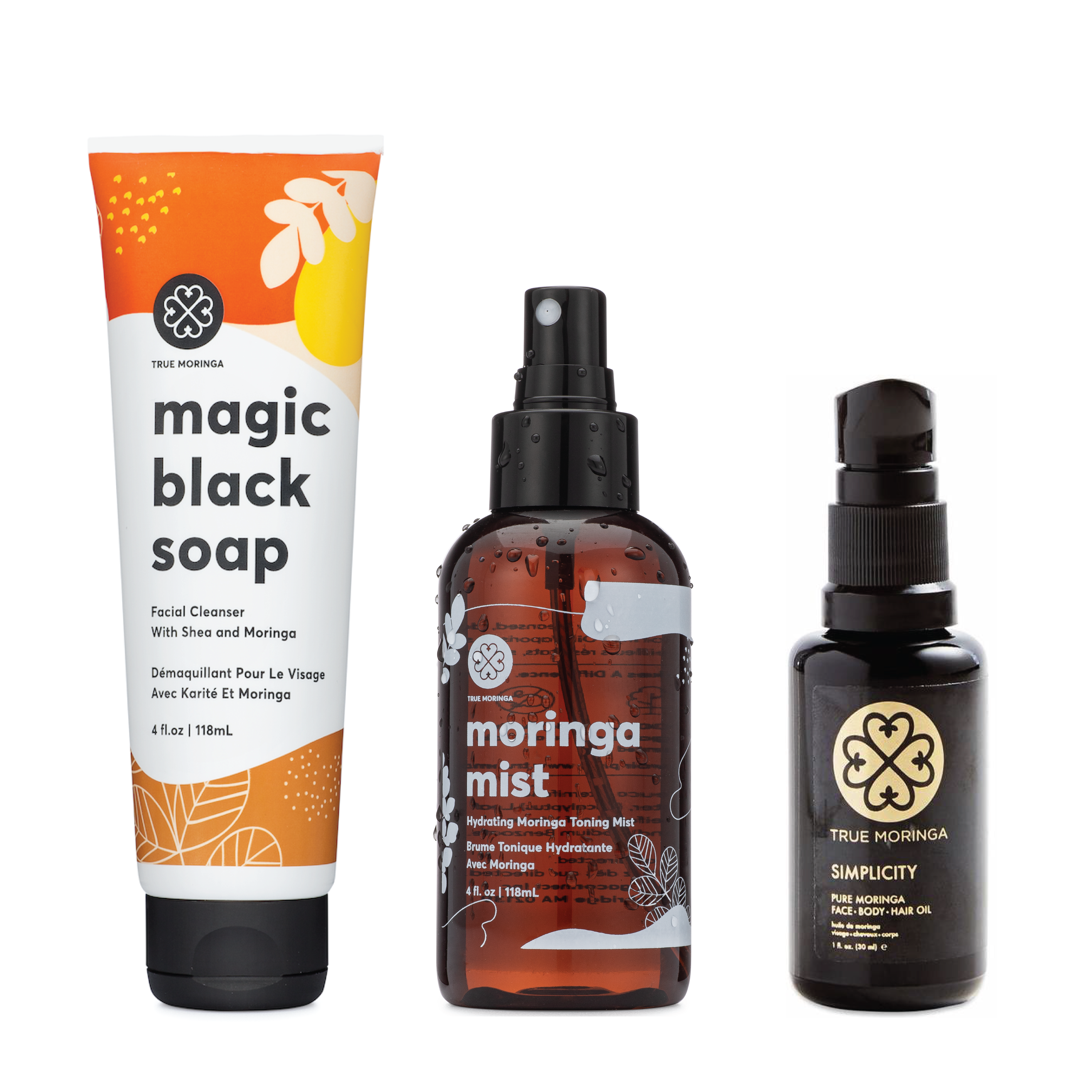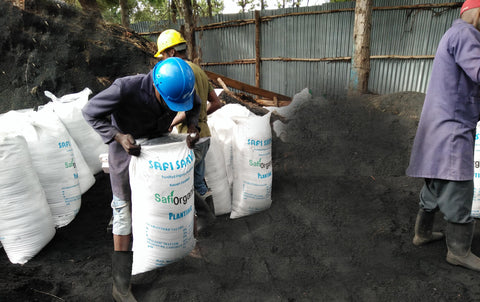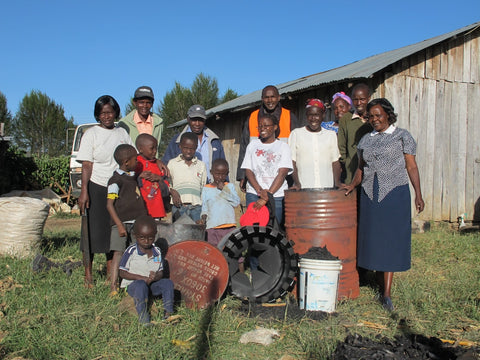



Meet Safi Organics: Changing Lives In Kenya with Carbon Negative Fertilizers
We love a good story about a company that is truly collaborating with local communities to benefit both people and planet. We sat down with Dr. Kevin Kung, to learn how he and his partner Samuel Rigu are changing lives in rural Kenya by creating carbon negative fertilizers for small farming families. Support their crowdfunding campaign start your holiday shopping early with gifts that give back - perks of donating include specialty Kenyan coffee, handcrafted sculptures and jewelry, and True Moringa oil to boot!
What made you decide to start Safi Organics?
Co-founder Samuel Rigu grew up in rural Kenya, and most of his family members and neighbors were poor smallholder farmers. He vividly remembers that when he was a child, one day he was with his grandmother in the field as she was harvesting some maize cobs, she said, with tears in her eyes: "Son, twenty years ago, we were harvesting double of what we harvested this year. I am afraid that in twenty years, there will be no more food from this land for you." This scared Samuel, and as he grew up, he knew that he had to tackle this issue of long-term soil degradation and bring better livelihood for smallholder farmers. Samuel proceeded to study Agribusiness at the University of Nairobi. Afterwards, as the manager of Turning Point Trust Farm, he turned the farm from a loss-making enterprise into profitability within six months by training farmers to implement organic farming practices. By working on the Turning Point Farm, every harvest season he saw piles of crop residues being burned in the open air. This seemed to be to be a waste, so he became interested in the potential of utilizing crop residues.
At that time, as Samuel was doing research of his own, he met Dr. Kevin Kung from Massachusetts Institute of Technology (MIT), who was also interested in developing technologies to convert crop residues into various higher-value products. So with Kevin as a technical co-founder, the duo first launched a business (SafiCoils) in 2013 that converted farmers' residues into low-toxin mosquito coils, and sold more than one million of them in the market. Eventually, the business was not successful because it could not generate sufficient gross margin to sustain it at a meaningful scale. They then decided to pivot to exploring how to turn the same residues into a high-yield fertilizer that simultaneously acts as a liming agent to counteract against the acid-related soil degradation. Over many seasons of trials with actual farmers, Samuel and Kevin developed a series of chemical recipes that complete the nutrient. When combined with the MIT technology, the team realized that they now have a way of decentralizing the fertilizer production on the village level, and even custom-tailor the fertilizer characteristics on at an almost single-farm granularity.
What makes your way of doing business unique?
Like True Moringa, we are one of the few companies that combine the right combination of cutting-edge technology and intimate local community connection. We are also one of the few companies that believe that doing well comes directly from doing good.
While our technology is based on six years of PhD effort at MIT and seven scientific publications, from our past experience, engineering design in abstraction from real-life end user feedback can often be a misguided effort. That is why before we even began to design any advanced technology, we constantly sought input from local smallholder farmers, starting in 2011. Thanks to Samuel’s deep connection amongst Kenyan farmers, the team was able to gain intimate insights into the local agricultural needs and challenges in a way that few MIT researchers could access. We then tried different versions of imperfect technologies to get to produce initial products, some of which failed. Ultimately, we produced an imperfect fertilizer product that, surprisingly, farmers liked so much that they were willing to overlook the product’s flaws. The rest of the business was then built on this foundation, of iterating and improving on the technology and the product.
Secondly, to us, making money is a necessary aspect of our business, but it is not sufficient. Therefore, from day one, we intentionally designed social and environmental impact into an integral part of our business. For many social enterprises, there may be a trade-off or tension between profitability and impact. But for us, that is not the case: the more fertilizer we sell, the more farmers we lift out of poverty, the more land we restore, the more carbon we sequester into the soil, and the more profit we make. It is impossible to segregate impact from business profitability in our case.
Tell us about one of the farmers you're working with
Meet Mr. Kibuchi, who has a rice farm near Mwea. Over 15 years, he had seen his yield decrease by almost half. After using our product, his input costs remained consistent, but he has seen his crop yield increased by 30%, and net income increased by 50%. This was sufficient to send his two children to school, and last year, for him to afford a second-hand tractor for his farm. “With the Safi Sarvi fertilizer, I always have enough food on the table for my family,” he said.
Tell us how the crowdfunding campaign will take your project to the next level
So far, by bootstrapping, we have set up a pilot village-based fertilizer production in Mwea that serves 2,500 farmers, most of whom are repeat customers. As of early 2019, we have also demonstrated that this production has been financially profitable at a scale of 1 ton/day.
Recently, we received our first government tender: the Nakuru County Government wants us to supply $58,000 worth of fertilizers to an additional 1,000 farmers in a ward in Nakuru County. This is a huge progress for us in achieving scale and impact.
However, there is a catch: In Kenya, the normal standard of government orders is for payment to follow around 3 months after verified and documented product delivery. To finance production to meet the order, we need an increase in our current working capital. To increase our production capacity to fulfill anticipated future orders like this, we will also be implementing the newest production technique from MIT/Takachar. These activities require a total of $25,000.
The funds we raise through this campaign will reside with us as an evergreen working capital, and will allow us to grow and fulfill other tenders and large orders in the future. Once the funds have been received from this contract they will be reinvested in the business to expand and hence create more impact.
Anything else to share?
Kevin Kung from Safi Organics and Kwami Williams from True Moringa, were classmates in Massachusetts Institute of Technology (MIT) and worked on class projects together. It was during a class called D-Lab that brought MIT students to rural Ghana for a month. Immersing with rural farmers in Africa opened the eyes of both Kwami and Kevin. In Kwami’s case, he changed his career trajectory from being a rocket scientist to being a social entrepreneur. In Kevin’s case, he got to know Samuel in Kenya and together co-founded Safi Organics. Now both companies serve rural smallholder farmers in Africa in different ways.

